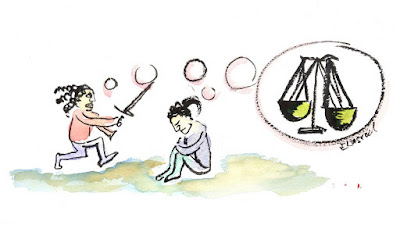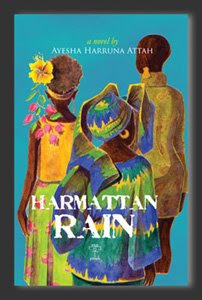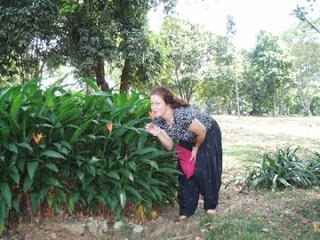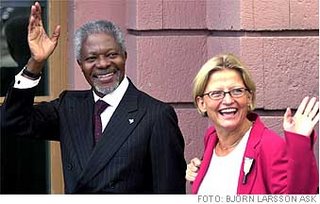Just heard about the documentary A Small Act. The heartwarming story about a Swedish lady and a Kenyan school boy starts like this:
When Hilde Back sponsored a young, impoverished Kenyan student, she thought nothing of it. She paid roughly $15 dollars per term to keep him in primary school. She certainly never expected to hear from him, but many years later, she does. The small contribution she made paid off – Chris Mburu went all the way to Harvard. Now, he’s a respected UN human rights lawyer, dedicating his life to battling genocide and crimes against humanity.
Many years later, Mburu decides to himself start a educational fund for needy children, much like himself growing up. What is so special about Mburu’s fund is he doesn’t take the credit for it, but rather decides to give it his benefactor’s name. Hilde Back educated one boy and he is now in a position to educate more children. The small act doesn’t seem so small anymore…
Doesn’t it sound just wonderful?
But then the election comes up in Kenya with all the confusion and violence. Also, few students seem to qualify for his fund due to poor elementary schooling. What happens now to the fund?
The film also has a blog, in which the filmmaker Jennifer Arnold tells us some interesting behind the screen stories, here is one about the screening for the Kenyans appearing in the film.
I told them I brought the film back, so they would know exactly what audiences would see and I wanted to answer any questions they had about what I had put in the story. Slowly they started to talk, telling me they didn’t think the film would be as real as it was. They said it was very, very touching. It made them feel both happy and sad. In the end they said the film showed the truth, and because it was all true it was good that I was going to show it, both here and abroad.
After the talk was done. We all went outside for tea. There seemed to be a huge amount of bonding and relief. They were teasing me, telling me I need to marry a Kikuyu because I know so much about them.
Of course not all sponsored kids go to Harvard, but maybe that isn’t the point. Maybe the lesson learned from this film is rather for the givers. Being involved makes a difference. And that is wonderful.
See the trailer below.
A SMALL ACT Trailer 2010 from Jennifer Arnold on Vimeo.
I’ll let you know when the film comes to Accra!








